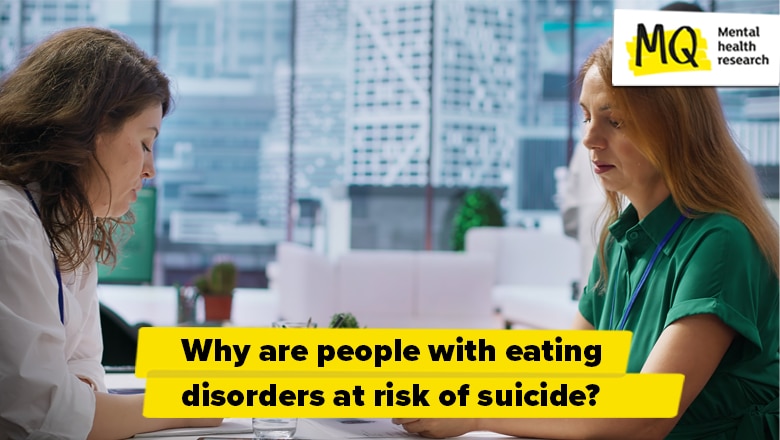3. Sparks of Hope: Protective Factors Against Suicidality: While much of the data reflected distress and hopelessness, people also spoke about moments that helped them stay alive. These protective experiences were not limited to formal treatment but emerged through connection, purpose, and feeling believed. These protective moments didn’t erase the pain but instead offered something to hold onto. Having even small reasons to stay alive, like connection with someone, a future goal, or feeling believed helped interrupt suicidal thinking. Such hope could be “held” by others (therapists, friends, peers) during times when the person couldn’t hold it themselves.
4. “They Only See Weight”: How Gaps in ED Care Reinforce Isolation and Risk: This theme looks at how suicidal thoughts were influenced not just by the emotional impact of the eating disorder itself, but also by participants’ experiences with support systems during crises. They described how aspects of care, like hard-to-access services, a focus only on physical danger, or disjointed support, sometimes left their suicidal feelings unnoticed. Instead of reducing risk, the lack of proper support often made feelings of hopelessness and isolation worse, fuelling their suicidality.
This study shows helps us build a better understanding of suicidality for people with EDs as it shows that the link between EDs and suicidal thoughts is complicated, while showing new ways that these thoughts and feelings occur – things that current theories don’t fully explain.
By listening to people with eating disorders and the clinicians who support them, we learned more about why suicidal feelings can happen and how they can show up at different stages of the illness and during recovery.
The findings show that treatment should focus on the person, not just the symptoms. Care needs to be flexible, personal, and based on proven approaches. This helps people get the support they need and address the thoughts and feelings behind suicidality.
You can read the full paper here.
If you are affected by any of the issued discussed in this article you can get help here. You can also find out more information about Eating Disorders, and access support, from the charity BEAT. If you are impacted by suicidal thoughts them remember, the Samaritans are always available to speak to by calling 116 123 from anywhere in the UK.









